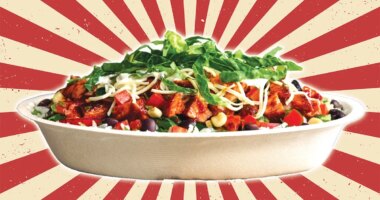One thing none of us will forget is the impact that the COVID-19 pandemic has had on the world over the last few years. And while cases of COVID-19 have seemed to lessen in overall severity and number, we’re not out of the clear just yet. In fact, a new strain of COVID-19 discovered in China is ramping up precautions once again, with mandatory testing for travelers from China to the U.S. starting in January 2023, per the Centers for Disease Control (CDC).
The most recent strain to take the U.S. by storm is the Omicron variant, which has symptoms including runny nose, sore throat, cough, fever, headaches, muscle pain, and fatigue, per UC Davis Health. While the symptoms of this strain are typically less severe than previous strains of COVID-19, they’re still no laughing matter. If you’re experiencing COVID-19 symptoms, you’re probably searching for ways to feel better ASAP at your local pharmacy. However, your kitchen and local grocery store may offer supplemental solutions that can support your immune system as it combats this virus, too. There are certain foods you can eat that can help alleviate your COVID-19 symptoms. (Before stocking up, just be sure to check with your healthcare provider to confirm that your choices align well your doctor’s recommended treatment plan.)
Along with plenty of rest and hydration, a simple diet comprised of healthy foods can play an essential role in your body’s ability to rebound and recover from the COVID-19 virus. Here are some of the best foods you can eat to fight your COVID-19 symptoms.
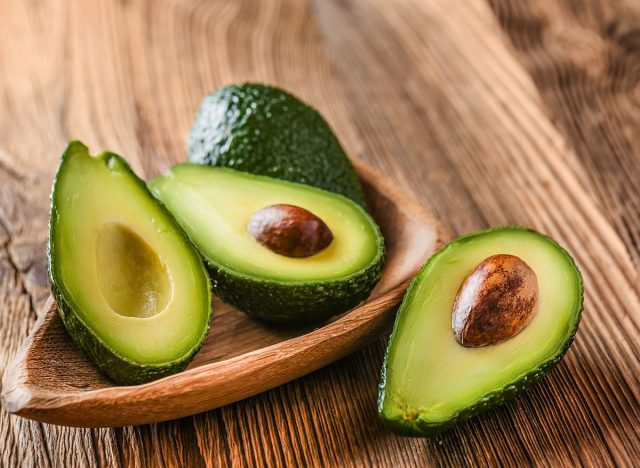

COVID-19 increases inflammation in the body, which can lead to a range of symptoms from body aches all the way to organ failure. Researchers found that the antioxidant glutathione, a primary antioxidant responsible for combating oxidative stress in the body, is deficient in people of all ages with COVID-19 infections.
“Avocados are rich in glutathione and are easy to add to a meal as a topping or to blend in a smoothie,” says Sarah Pflugradt, MS, RDN, a performance nutritionist. Inflammation can be a culprit of symptoms like muscle aches, fever, fatigue, and a sore throat.
In addition to low glutathione, low potassium is commonly found in people with the COVID-19 infection, and symptoms can include constipation, fatigue, muscle weakness or spasms, and heart palpitations. Avocados are also high in potassium with 21% of your daily value in just one fruit. This can help replenish your potassium stores.
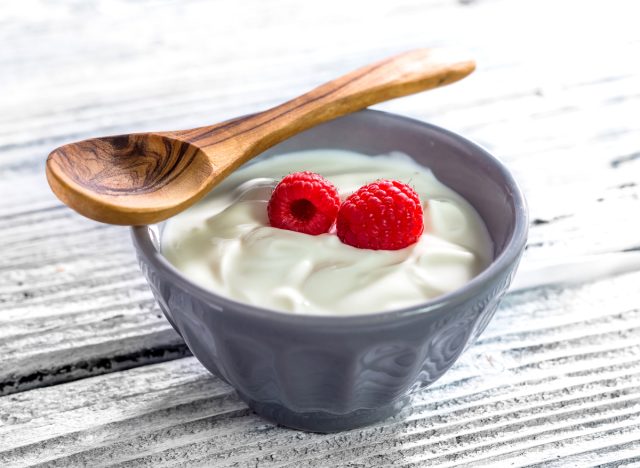

Yogurt, kefir, and other probiotic foods can help restore the healthy bacteria in your gut, helping you feel better and reducing the chances of subsequent infections and illness while you’re recovering from COVID-19 or after.
“COVID-19 drastically alters the gut microbiome. So during and after COVID-19, a quality probiotic is essential,” says Kristen White, RDN, CLT.
READ RELATED: Child obesity action 'risks losing its way'
While you can take a probiotic supplement, eating foods that are natural sources of probiotics can help replenish your stores, as well.

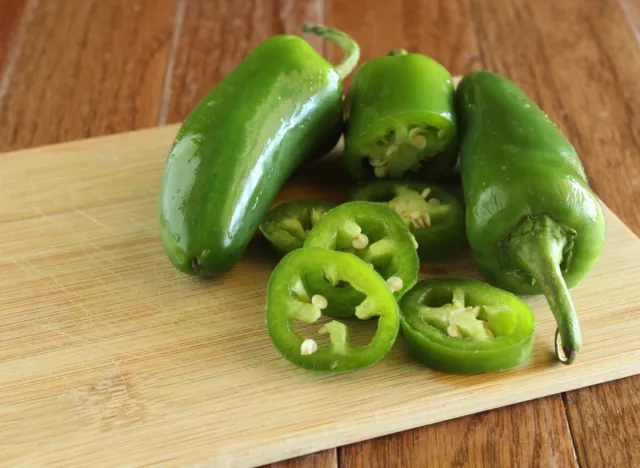
If you have a persistent cough, eating spicy peppers like jalapeños that are rich in capsaicin could help. A small January 2015 study in Respiratory Medicine found that chronic coughs decreased in people who took capsaicin powder daily for four weeks. But, if you also have a runny nose, keep in mind that spicy foods could worsen this symptom, as it loosens mucus.
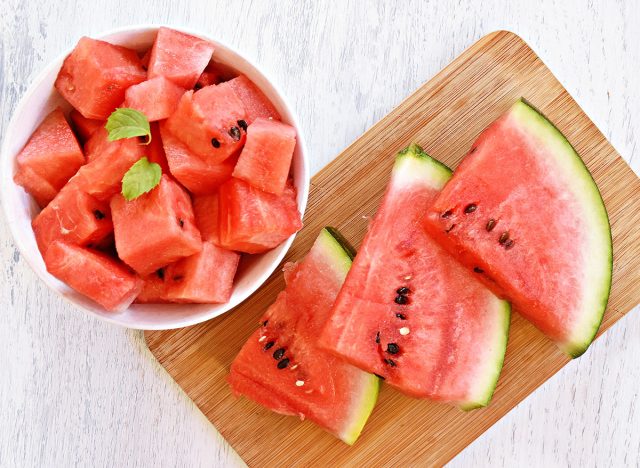

If you’re having trouble drinking enough fluids, try eating foods high in water and other important nutrients. Watermelon is over 90% water, and a good source of vitamin A and vitamin C. Additionally, it has 11 grams of carbohydrates to help you feel more energized. Staying hydrated will help thin mucous, relieve sore muscles, and help improve headaches.
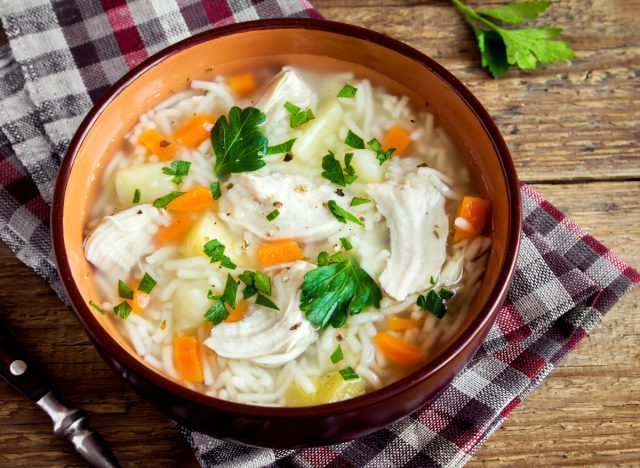

Chicken noodle soup is the classic sick day food, and there’s actually a scientific reason why. In 2000, researchers at the University of Nebraska Medical Center put chicken soup to the test and found a mild anti-inflammatory effect from the chicken soup that actually helped inhibit neutrophil products, which are a known cause of mucous production in respiratory infections like COVID-19.
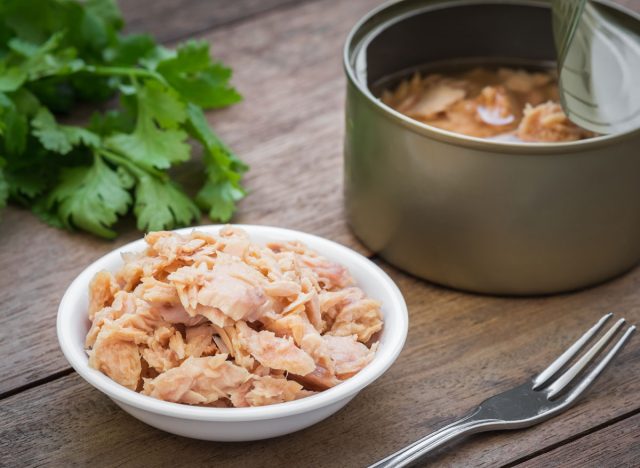

If you’re feeling up to it, tuna fish can be key to feeling better and fighting off the symptoms of COVID-19. Tuna, especially albacore tuna, is high in omega-3 fatty acids and vitamin C, which can help lower inflammation in the body.
An April 2022 article in the International Journal of General Medicine reports that in severe cases of COVID-19, omega-3 fatty acid supplementation could be useful in reducing the duration of symptoms, most likely related to their inflammation-reducing effects. Also, an October 2022 study in Life Sciences found that people treated with vitamin D had lower levels of inflammatory markers in their blood, which also led to shorter ICU stays.
Canned tuna is easy to get and prepare as well if you’re not feeling well enough to cook. Mix a can of tuna fish with avocado and enjoy it on a whole wheat pita for an easy and nutrient-rich lunch.
Source:





